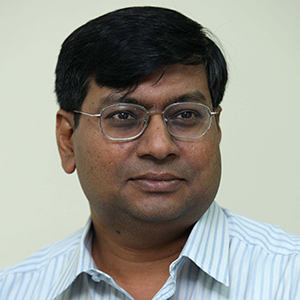The launching last month of the Negara-Ku movement, which aims to reclaim the nation from racism and extremism, signals the attempt of a core group of concerned Malaysians to break the vicious cycle of hate-mongering that has come to grip the nation in recent years.
The importance of this initiative at this juncture in the country’s history cannot be underestimated because it represents the crystallisation of a growing feeling that anarchic forces are at work to prevent Malaysia’s diverse communities from sharing a sense of common identity.
It is crucial, therefore, to take stock of the disturbing state of race relations that has led to the establishment of the movement to heal Malaysia and restore hope, as stated at its launching.
A big part of the fault for our current social dysfunctionality clearly lies with political parties and their affiliates that continue to derail the process of inclusive nation-building and a Bangsa Malaysia national identity, as national laureate Datuk A Samad Said pointed out at the unveiling of the initiative.
It follows then that the search for solutions should lead us beyond the political arena so that the discussion is not framed by power relationships but common goals and aspirations.
A key problem with the current discourse is that it is framed on the idea of a Malay-Muslim polity that must accommodate the encroachments of diverse groups of outsiders into the resources, rights and livelihoods of this indigenous group.
After more than five decades of nationhood, it is evident that serious fissures continue to separate the Malays from the non-Malays, and some would argue, divisions have become accentuated in certain fields.
To close these gaps, therefore, it would be logical to shape the Malaysian identity anew by shifting away from the present model, so that differences are not harped on but commonalities emphasised instead.
However, the practical difficulty with this thrust is that it will undermine the power bases of many political parties currently dominating the political landscape. This will surely mean that it will be viciously attacked by the groups and individuals whose venom the Negara-Ku movement is seeking to neutralise.
How then can we move forward towards national unity?
There are both negative and positive aspects of the current dilemma that can provide the impetus for change.
For instance, people of the different ethnic and religious groups can begin to realise that some quarters with vested interests are manipulating their sentiments in order to control them and ensure their continued support for the status quo.
They may also realise that some of the prominent voices that are speaking on behalf of their communities are painting an ugly picture of them as intolerant, hate-filled and insensitive, among other things.
The people could also grow tired of being at constant loggerheads with other communities and take alternative positions that do not automatically generate hostility.
On the positive side, communities can grow to become more open to cross-cultural pollination, sharing their best traits with others and drawing inspiration from the communities around them.
People can also choose to adopt new interpretations of their identity that enable them to integrate with the increasingly borderless nature of the world today.
Third, people can relook at the core teachings of their faiths and belief systems to find common themes shared by all religions, instead of allowing the fixation with exclusivity to block out the essential unity of all spiritual teachings.
A more exhaustive listing of the various possible approaches to get out of the downward spiral in our inter-communal relations would show that there is no lack of scope for a wholesome new Malaysian identity to be nurtured, and for such a national consciousness to be broad enough to accommodate the hopes and aspirations of all communities that make up our plural society.
The million-dollar question is whether such an outlook would be allowed to thrive in the current political configuration.
As Pak Samad pointed out at the launch of the Negara-Ku movement:
“The mobilisation and manipulation of race, ethnicity and religion have resulted in increasing intolerance, bigotry and extremism. There is also an emerging sub-culture of political violence. These are symptomatic of dangerous undercurrents in our society.”
More urgently, he identified the risk that accompanies inaction.
“We have to act before our society descends into the abyss of instability,” he said.
This then is the crux of the matter: the dire need for action to save our country from going up in flames.
If we recognise the urgency for positive effort for the sake of Malaysia’s future, we cannot ignore the call of duty to help birth our new nation.
To make a reality of the new Malaysia that is free of racism and extremism, all of us can assert these values in our personal and professional lives, through the organisations and interests we are affiliated with, the businesses we engage with and the social intercourse we engage in.
It is, therefore, within everyone’s power to make the mission of a racism- and extremism-free society a reality.
It is no exaggeration to say that the time to show our love for the country is right now at hand.
Will we find the sense of purpose to stand up for Malaysia, as the people who have come together for the Negara-Ku movement have done?
History will be our judge. – August 16, 2014.
* This is the personal opinion of the writer or publication and does not necessarily represent the views of The Malaysian Insider.


Comments
Please refrain from nicknames or comments of a racist, sexist, personal, vulgar or derogatory nature, or you may risk being blocked from commenting in our website. We encourage commenters to use their real names as their username. As comments are moderated, they may not appear immediately or even on the same day you posted them. We also reserve the right to delete off-topic comments